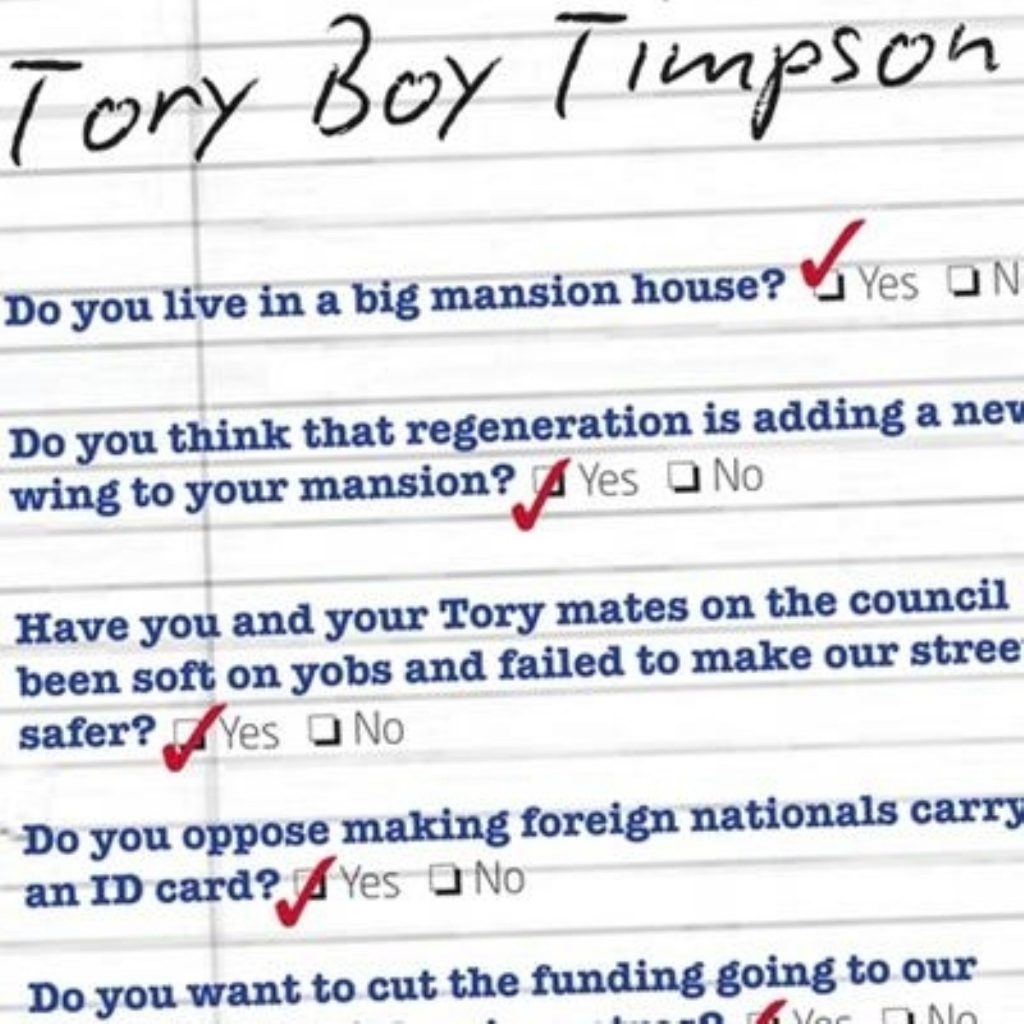Analysis: Tory win at Crewe and Nantwich
Labour expected to lose this morning, but they were hoping to do so by a close margin. The party’s fortunes have been so poor of late that such an outcome would have struck them as wholly acceptable.
In the event, the race wasn’t close. It was a crushing defeat. Labour party strategists will be picking up the pieces this morning, and they will have very little to be optimistic about.
Labour has lost a safe seat to the Tories, the kind of seat they really can’t afford to start losing. The party has one less MP in parliament. The tide of negative media coverage and Conservative resurgence – already substantial – has grown overnight. The ‘Tory toff’ leaflets utilised by Labour have blown up horribly in their face in a way unimaginable under Tony Blair.
The margin of defeat is devastating. The result exceeds even the most optimistic of Conservative estimates. There are good reasons to believe David Cameron has succeeded in a mission many analysts thought borderline insane two years ago – to modernise the Tory party while still galvanising its traditional supporters to go to the polls when it matters.


But the Conservatives should not let their euphoria this morning cloud their judgement. As Labour spokespeople will no doubt reiterate in the aftermath of this morning’s events, by-elections are not general elections.
When analysts extrapolate from by-election results to national projections they ignore the peculiarities of Britain’s local regions. Prosperity, regional characteristics and local issues strongly influence how each area votes. Besides those factors, voters tend to treat by-elections as an opportunity to give the government a bloody nose, and then often revert back to supporting the party when they feel the opposition could get in.
If you want a historical example, look no further than Neil Kinnock’s remarkable run of by-election victories in 1992. He was promptly slaughtered in the ensuing general election.
But by-elections do have a way of making MPs look nervously at their seat with the thought that it could soon be them going out the door. When the losses come in northern heartlands, Labour MPs get even more nervous.
Despite the permanent smiles and united front the party puts on over the next few days, Labour MPs will be jittery and potentially treacherous. But regardless of rumours circulating about former home secretary Charles Clarke’s dark intentions, there’s unlikely to be any overt – or even covert – attempt to get rid of Gordon Brown.
MPs realise – correctly – such a move would be considered distasteful and untrustworthy by the electorate, who usually respond badly to political parties when they begin to eat themselves alive. Not only that, but most believe – again correctly – it would be unseemly to have a second unelected Labour prime minister in a row.
This morning’s result will not create a sea-change in Britain’s political landscape. But it takes the Conservatives one giant leap closer to power, in terms of the electorate’s assumptions if not actual Commons seats. And, just as importantly, it drives Labour further and further into the darkness.









